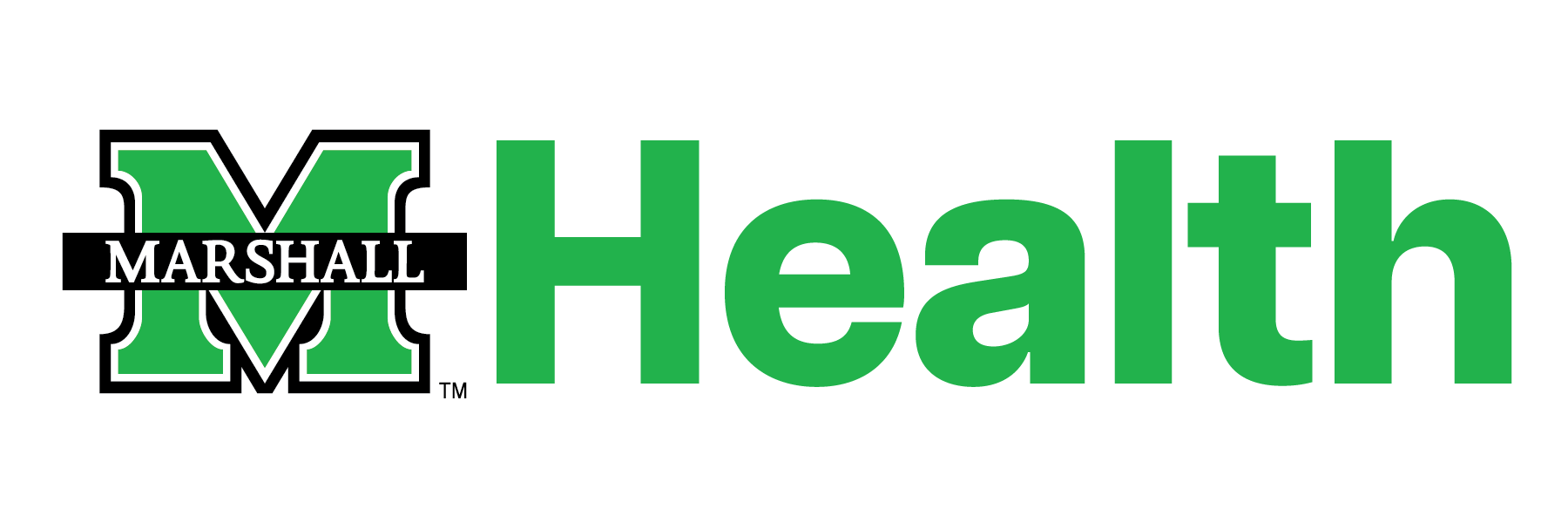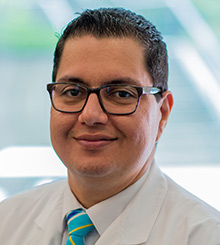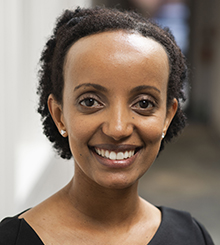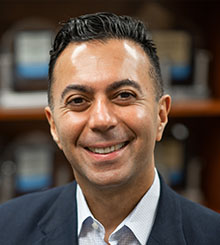Minimally Invasive Surgery
Surgery doesn't always mean large cuts (incisions) and long healing times, as in the past. Depending on the type of surgery, several methods may be used. Minimally invasive surgery is available with or without the assistance of a robotic system depending on the nature of the procedure. It uses small incisions or natural openings such as the mouth, nose or rectum as an entrance to perform the procedure. Not all conditions are right for this approach. It also can be used to assess illnesses and injuries, take tissue samples and make repairs.
-
Laparoscopy. This procedure uses a tube with a light and a camera lens at the end (laparoscope) to look at organs in the belly. It's often used to look inside the body without making large incisions. Tissue samples may also be taken for exam and testing.
-
Endoscopy. This test uses a small, flexible tube with a light and a camera lens at the end (endoscope). It's used to look at the inside of the hollow organs of the digestive tract. Tissue samples may also be taken for testing. Endoscopy may be used on the stomach (gastroscopy), the esophagus (esophagoscopy), and the colon (sigmoidoscopy, or colonoscopy).
-
Arthroscopy. This is used to look inside a joint with the use of a scope (arthroscope). It's most often used to inspect and possibly repair the inside of the knee, shoulder, or hip joint.
-
Bronchoscopy. This is the exam of the main airways of the lungs (bronchi) using a rigid or flexible tube (bronchoscope). Bronchoscopy helps assess and diagnose lung problems. It also helps assess blockages, take samples of tissue or fluid, or help remove a foreign body.
-
Thoracoscopy. This is minimally invasive surgery in the chest cavity.
-
Cystoscopy. This procedure puts a viewing tube to look at the urethra and bladder cavity.
-
Hysteroscopy. This is used to look at the cervical canal and uterine cavity with an endoscope.
-
Laryngoscopy. This is used to look at the voice box (larynx) with a mirror or viewing tube.
The benefits of minimally invasive surgery are:
- Fewer, smaller incisions (if an incision is made)
- Significantly smaller scars
- Less internal scarring
- Lower risk of infection
- Less post-operative discomfort since the incisions are much smaller
- Quicker recovery time
- Earlier return to full activities
- Reduced blood loss
Types of surgery available include:
Marshall Health and Cabell Huntington Hospital are proud to offer the latest in cutting edge technology through da Vinci® robotic surgery. Unlike how its name may imply, surgery is performed under the direction of a highly-trained surgeon and not a robot. The surgeon uses the robotic system as a tool to accomplish complex procedures with precision, dexterity and control far greater than what could be achieved with a human hand.
The results are:
- Smaller incisions
- Less pain
- Shorter hospital stay
- Faster return to daily activities
- Potential for better clinical outcomes
Types of da Vinci® robotic surgery available include:
Nadim Bou Zgheib, MD, FACOG
Clinical Interests:
Locations:
- Edwards Cancer Institute - South Charleston 304.342.3891
- Edwards Comprehensive Cancer Center 304.399.6500
Jared T. Brownfield, MD, FACOG
Clinical Interests:
Locations:
- Marshall OB/GYN - Route 60 304.399.2480
- Marshall OB/GYN - Huntington 304.691.1400
Matthew W. Bullock, DO, MPT, FAAOS
Clinical Interests:
- Joint Replacement
- Knee & Hip Care
- Orthopaedics
- Surgery - Minimally Invasive
- Surgical Services
- Telemedicine
Locations:
- Marshall Orthopaedics - Huntington 304.691.1262
- Marshall Orthopaedics - Route 60 304.691.1262
- Marshall Orthopaedics - Teays Valley 304.691.6710
Yolanda Campbell, MD, FACOG
Clinical Interests:
Locations:
- Marshall OB/GYN - Teays Valley 304.691.1800
Alexander T. Caughran, MD
Clinical Interests:
- Joint Replacement
- Knee & Hip Care
- Orthopaedics
- Surgery - Minimally Invasive
- Surgical Services
- Telemedicine
Locations:
- Marshall Orthopaedics - Huntington 304.691.1262
- Marshall Orthopaedics - Teays Valley 304.691.6710
Michael J. Chambers, MD
Clinical Interests:
- Orthopaedics
- Sports Medicine
- Sports Medicine Institute
- Surgery - Minimally Invasive
- Surgical Services
- Telemedicine
Locations:
- Marshall Orthopaedics - Ashland 606.327.0036
- Marshall Sports Medicine Institute 304.691.1880
Felix H. Cheung, MD
Clinical Interests:
- Joint Replacement
- Knee & Hip Care
- Oncology - Orthopaedic
- Orthopaedics
- Surgery - Minimally Invasive
- Surgical Services
- Telemedicine
Locations:
- Edwards Comprehensive Cancer Center 304.399.6500
- Marshall Orthopaedics - Ashland 606.327.0036
- Marshall Orthopaedics - Gallipolis 855.446.5937
- Marshall Orthopaedics - Huntington 304.691.1262
Charles E. Giangarra, MD
Clinical Interests:
- Hand & Upper Extremity Care
- Knee & Hip Care
- Orthopaedics
- Sports Medicine
- Sports Medicine Institute
- Surgery - Minimally Invasive
- Surgical Services
- Telemedicine
Locations:
- Marshall Sports Medicine Institute 304.691.1880
John J. Jasko, MD
Clinical Interests:
- Fertilized ACL
- Orthopaedics
- Sports Medicine
- Sports Medicine Institute
- Surgery - Minimally Invasive
- Surgical Services
- Telemedicine
Locations:
- Marshall Orthopaedics - Teays Valley 304.691.6710
- Marshall Sports Medicine Institute 304.691.1880
James C. Jensen, MD, FACS
Clinical Interests:
Locations:
- Edwards Comprehensive Cancer Center 304.399.6500
Hisham A. Keblawi, MD, FACOG
Clinical Interests:
Locations:
- Marshall OB/GYN - Route 60 304.399.2480
- Marshall OB/GYN - Huntington 304.691.1400
Chad D. Lavender, MD
Clinical Interests:
- Fertilized ACL
- Knee & Hip Care
- Orthopaedics
- Sports Medicine
- Sports Medicine Institute
- Surgery - Minimally Invasive
- Surgical Services
- Telemedicine
Locations:
- Marshall Orthopaedics - Teays Valley 304.691.6710
Dana S. Lycans, MD
Clinical Interests:
- Fertilized ACL
- Hip Arthroscopy
- Knee & Hip Care
- Orthopaedics
- Sports Medicine
- Sports Medicine Institute
- Surgery - Minimally Invasive
- Surgical Services
- Telemedicine
Locations:
- Marshall Orthopaedics - Boone 304.369.1230
- Marshall Sports Medicine Institute 304.691.1880
Brenda L. Mitchell, MD, FACOG
Clinical Interests:
Locations:
- Marshall OB/GYN - Huntington 304.691.1400
Semeret T. Munie, MD
Clinical Interests:
Locations:
- CHH Center for Surgical Weight Control 304.399.4121
- Marshall Surgery - Huntington 304.691.1200
D. Blaine Nease, MD, FACS
Clinical Interests:
Locations:
- CHH Center for Surgical Weight Control 304.399.4121
- Marshall Surgery - Huntington 304.691.1200
Amanda N. Pauley, MD, FACOG
Clinical Interests:
Locations:
- Marshall OB/GYN - Route 60 304.399.2480
- Marshall OB/GYN - Huntington 304.691.1400
Amy "Ally" Roy, MD, FACOG
Clinical Interests:
Locations:
- Marshall OB/GYN - Route 60 304.399.2480
- Marshall OB/GYN - Huntington 304.691.1400
Kristin Sinning, MD, MPH, FACOG
Clinical Interests:
Locations:
- Marshall OB/GYN - Huntington 304.691.1400
Emily Sloane, MD, FACOG
Clinical Interests:
Locations:
- Marshall OB/GYN - Route 60 304.399.2480
- Marshall OB/GYN - Huntington 304.691.1400
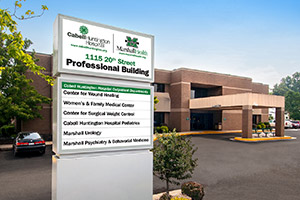
CHH Center for Surgical Weight Control
20th Street Professional Building
1115 20th Street
Huntington, WV 25703
Phone: 304.399.4121
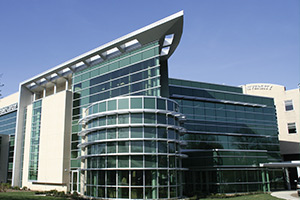
Edwards Comprehensive Cancer Center
An outpatient department of Cabell Huntington Hospital
1400 Hal Greer Blvd.
Huntington, WV 25701
Phone: 304.399.6500
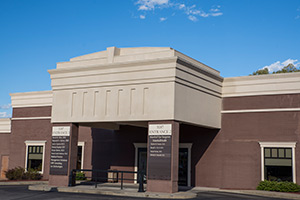
Marshall Eye Surgeons
East Hills Professional Center
3246 U.S. Route 60
Suite 6
(Note: may still appear as 5187 U.S. Route 60 in some GPS systems)
Huntington, WV 25705
Phone: 304.691.8800
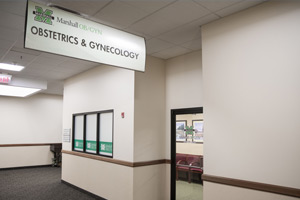
Marshall OB/GYN - Route 60
3075 U.S. Route 60, Suite 3400
(Note: may still appear as 5170 U.S. Route 60 in some GPS systems)
Huntington, WV 25705
Phone: 304.399.2480
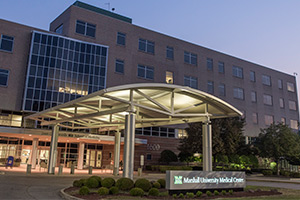
Marshall OB/GYN - Huntington
A provider-based department of Cabell Huntington Hospital
Marshall University Medical Center
1600 Medical Center Drive
Suite 4500 (4th Floor)
Huntington, WV 25701
Phone: 304.691.1400
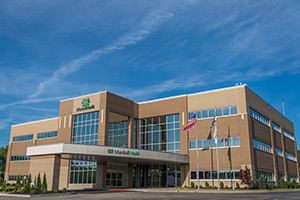
Marshall OB/GYN - Teays Valley
An outpatient department of Cabell Huntington Hospital
Marshall Health - Teays Valley
300 Corporate Center Drive
3rd Floor
Scott Depot, WV 25560
Phone: 304.691.1800
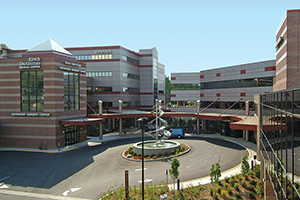
Marshall Orthopaedics - Ashland
King's Daughters Medical Center
Medical Plaza B
613 23rd Street, Suite G30
Ashland, KY 41101
Phone: 606.327.0036

Marshall Orthopaedics - Huntington
A provider-based department of Cabell Huntington Hospital
Marshall University Medical Center
1600 Medical Center Drive
Suite G500 (Ground Floor)
Huntington, WV 25701
Phone: 304.691.1262
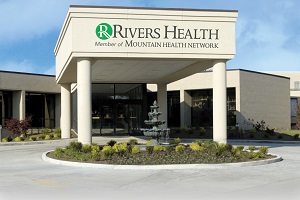
Marshall Orthopaedics - Point Pleasant
Rivers Health
2520 Valley Drive
Suite 211
Point Pleasant, WV 25550
Phone: 304.675.2781

Marshall Orthopaedics - Teays Valley
An outpatient department of Cabell Huntington Hospital
Marshall Health - Teays Valley
300 Corporate Center Drive
1st Floor
Scott Depot, WV 25560
Phone: 304.691.6710

Marshall Pediatric Specialties - Teays Valley
An outpatient department of Cabell Huntington Hospital
Marshall Health - Teays Valley
300 Corporate Center Drive
2nd Floor
Scott Depot, WV 25560
Phone: 304.691.8901
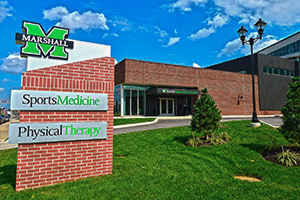
Marshall Sports Medicine Institute
2211 Third Avenue
Huntington, WV 25703
Phone: 304.691.1880

Marshall Surgery - Huntington
A provider-based department of Cabell Huntington Hospital
Marshall University Medical Center
1600 Medical Center Drive
Suite 2500 (2nd Floor)
Huntington, WV 25701
Phone: 304.691.1200
